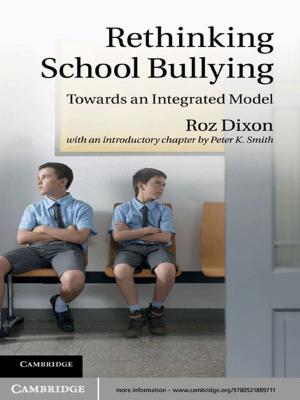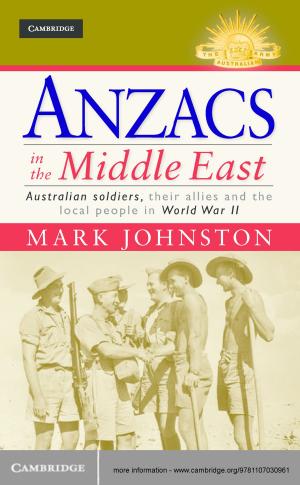At Home and under Fire
Air Raids and Culture in Britain from the Great War to the Blitz
Nonfiction, History, Modern, 20th Century, British| Author: | Susan R. Grayzel | ISBN: | 9781139209458 |
| Publisher: | Cambridge University Press | Publication: | January 9, 2012 |
| Imprint: | Cambridge University Press | Language: | English |
| Author: | Susan R. Grayzel |
| ISBN: | 9781139209458 |
| Publisher: | Cambridge University Press |
| Publication: | January 9, 2012 |
| Imprint: | Cambridge University Press |
| Language: | English |
Although the Blitz has come to symbolize the experience of civilians under attack, Germany first launched air raids on Britain at the end of 1914 and continued them during the First World War. With the advent of air warfare, civilians far removed from traditional battle zones became a direct target of war rather than a group shielded from its impact. This is a study of how British civilians experienced and came to terms with aerial warfare during the First and Second World Wars. Memories of the World War I bombings shaped British responses to the various real and imagined war threats of the 1920s and 1930s, including the bombing of civilians during the Spanish Civil War and, ultimately, the Blitz itself. The processes by which different constituent bodies of the British nation responded to the arrival of air power reveal the particular role that gender played in defining civilian participation in modern war.
Although the Blitz has come to symbolize the experience of civilians under attack, Germany first launched air raids on Britain at the end of 1914 and continued them during the First World War. With the advent of air warfare, civilians far removed from traditional battle zones became a direct target of war rather than a group shielded from its impact. This is a study of how British civilians experienced and came to terms with aerial warfare during the First and Second World Wars. Memories of the World War I bombings shaped British responses to the various real and imagined war threats of the 1920s and 1930s, including the bombing of civilians during the Spanish Civil War and, ultimately, the Blitz itself. The processes by which different constituent bodies of the British nation responded to the arrival of air power reveal the particular role that gender played in defining civilian participation in modern war.















